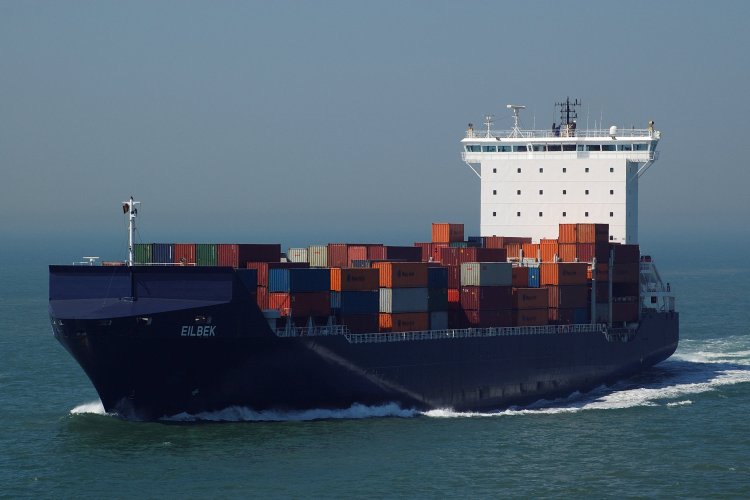Unveiling the Grim Reality: European Shipping Companies Exploiting Bangladeshi Lives and Environment

28-09-2023
Alexandra Posta
East and South Asia Human Rights Researcher
Global Human Rights Defence
In a comprehensive report released jointly by Human Rights Watch (HRW) and the NGO Shipbreaking Platform, a distressing revelation has come to light. Many European shipping companies are knowingly dispatching their end-of-life ships to perilous and environmentally hazardous shipbreaking yards in Bangladesh. These companies exploit legal loopholes to prioritize profit at the expense of the lives of Bangladeshi workers and the integrity of the environment.
The in-depth report, titled "Trading Lives for Profit: How the Shipping Industry Circumvents Regulations to Scrap Toxic Ships on Bangladesh’s Beaches," meticulously documents the dire situation in Bangladeshi shipbreaking yards. Shockingly, these yards frequently bypass essential safety measures, directly deposit toxic waste onto beaches and the surrounding ecosystem, and systematically disregard workers' rights, including fair wages, adequate rest, and compensation for injuries. The report exposes a clandestine network that allows shipowners to evade international regulations prohibiting the export of ships to facilities lacking adequate environmental and labor safeguards.
To comprehend the gravity of the situation, consider that since 2020, approximately 20,000 Bangladeshi laborers have dismantled over 520 ships, far exceeding the tonnage scrapped in any other nation. The International Labour Organization (ILO) has branded shipbreaking as one of the world's most perilous occupations. Workers frequently recount horrifying tales of inadequate protective equipment, substandard training, and a lack of essential tools, such as workers using their socks as makeshift gloves to shield their hands from searing metal.
Statistics reveal the grim reality: Bangladesh's shipbreaking industry reduces the life expectancy of its workers by a staggering 20 years, compared to the national average. Moreover, a survey conducted in 2019 estimated that 13 percent of shipbreaking workers are children, a figure that balloons to 20 percent during illegal night shifts. This exploitation of child labor is a blatant violation of international human rights standards.
The human rights implications of this crisis are profound. Shipbreaking workers endure perilous conditions that infringe upon their basic rights to life, security, and dignity. Denied safety equipment, proper training, and even contracts, these workers exist in a state of perpetual vulnerability. When accidents occur, the absence of accessible emergency medical care exacerbates their suffering. Additionally, their efforts to unionize or protest deplorable conditions result in retaliation, including job loss and harassment.
The environmental consequences are equally devastating. Toxic waste from shipbreaking operations is carelessly dumped into the sand and sea, poisoning the environment and jeopardizing the health of nearby communities. This blatant disregard for environmental norms contravenes international and regional laws prohibiting the export of ships to inadequately regulated facilities.
Human Rights Watch, the NGO Shipbreaking Platform, and concerned citizens worldwide urge European shipping companies to abandon these exploitative practices. It is essential for them to invest in safe ship recycling methods and cease advocating that "beaching" ships is a secure alternative. To handle the anticipated surge in end-of-life ships in the coming decade, these companies must establish stable platform facilities that prioritize workers' rights and responsible waste management. Simultaneously, the European Union must revise its Ship Recycling Regulation to effectively hold shipping companies accountable and prevent circumvention of the law.
As the International Maritime Organization, shipping companies, and shipbreaking yards tout the Hong Kong Convention as the solution to a safe and sustainable ship recycling industry, experts and activists have consistently lamented significant gaps in the convention's regulatory efficacy. Instead of greenwashing perilous practices, companies should direct their resources toward ethical ship recycling methods, ensuring the well-being of both people and the environment in Bangladesh.
The international community must unite to halt the exploitation of Bangladeshi lives and the degradation of its environment, holding those responsible accountable for their actions. In the words of Ingvild Jenssen, executive director and founder of the NGO Shipbreaking Platform, "The cost of sustainable ship recycling must be borne by the shipping sector, not people and the environment in Bangladesh." It is incumbent upon us all to advocate for this critical change.
SOURCE
HRW. (27 September 2023). Bangladesh: Shipping Firms Profit from Labor Abuse. Available at https://www.hrw.org/news/2023/09/27/bangladesh-shipping-firms-profit-labor-abuse.
HRW. (28 September 2023). Trading Lives for Profit. Available at https://www.hrw.org/report/2023/09/28/trading-lives-profit/how-shipping-industry-circumvents-regulations-scrap-toxic.




 GHRTV
GHRTV 




























